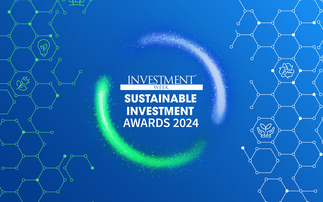Last year's UN Biodiversity Conference (COP15) proved to be a turning point. It recognised the importance of nature impacts if the world is to achieve net zero and avoid the worst effects of climate change.
Since then, several initiatives have sprung up to translate this concept into decision-useful factors for investors. These include the Finance for Biodiversity Foundation and the Natural Capital Investment Alliance, of which Fidelity is a member.
But most notably, policymakers, regulators and investors have been coalescing around the work of the Taskforce on Nature-related Financial Disclosures (TNFD), which is building a framework around 10 core areas for nature- based disclosure.
There is no easy way to capture risks and opportunities in relation to nature. However, the push for greater corporate disclosure is bringing this area into scope relatively quickly. Indeed, the EU's Corporate Sustainability Reporting Directive (CSRD) is being considered for inclusion by global standard setters such as the International Sustainability Standards Board (ISSB).
Biodiversity is important from an investment perspective and comes with a variety of associated risks and opportunities. We believe ‘nature positive' will be the new ‘net zero' in the coming years, as climate change increasingly becomes a subset of how we think about risks to biodiversity and natural capital.
Doing the work on net zero
At the same time, we continue to work with investee companies to reach net zero through on-the-ground decarbonisation. Our Climate Investing Policy, published in 2021, sets out our net zero targets and how Fidelity plans to achieve them. At its core is our engagement strategy targeting the highest emitters in different ways.
For the thermal coal sector, for example, we have developed a specific policy to engage intensively with companies on their transition pathways to help them switch to different business models and gradually phase out their carbon-intensive activities.
We aim to end investment in thermal coal by 2030 in OECD countries and in the rest of the world by 2040. In 2022, we began engaging with firms who were more advanced on their journey towards net zero to explore their practices, specifically how they were enabling a just transition through retraining their workforces as they phase out coal.
In 2023, we are focusing on companies with higher risk of new coal development and divestment to private firms with no intention of phasing out coal. We continue to participate in the Asia Transition Platform, run by Asia Research and Engagement (ARE), engaging alongside other investors with over 50 Asian financial institutions and coal-exposed power companies to raise awareness and share best practice on accelerating the transition.
We use our proprietary Climate Rating to assess where a company is on its transition journey and to prompt engagement with laggards. We also develop strategies and building blocks for clients wishing to invest in the transition through climate leaders, solutions providers, or those with the greatest potential for transition and carbon reduction.
Next steps on the net zero pathway include using green revenue tools (e.g. EU Taxonomy or Sustainable Development Goals alignment) to identify climate opportunities. We also use carbon footprints and scenario alignment at asset and portfolio level, in addition to our climate and ESG ratings, to map climate risks. Setting net zero targets at fund level will help further integrate climate considerations into investment decision- making and drive the transition across our fund range.
Transition plans under construction
In 2022, more and more companies set net zero targets. In 2023, we are seeing much greater focus on how these will be achieved and the development of more granular transition plans. This is being driven by investors like Fidelity who require greater visibility on corporate plans and associated capex (to mitigate climate risks to portfolios and to enable our own corporate transition plan) and by regulators and policymakers at global, regional, and national level.
For example, the EU is expected to include transition plans in its corporate disclosure requirements for companies when conducting due diligence, while the UK has indicated it could make transition plans mandatory for large companies, using a framework designed to complement not only the current Taskforce for Climate-related Financial Disclosure (TCFD) reporting framework, but also the emerging ISSB accounting standards.
Fidelity has contributed to these discussions through our engagements with regulators and standard setters, responding to consultations on the type of disclosure needed to make robust investment decisions and how to build capacity for sustainability reporting across economies. We have encouraged regulators to ensure as much global interoperability as possible and to integrate nature-related metrics as these emerge. The social aspects of the transition remain crucial.
Social matters
While energy prices had begun to fall as we entered 2023, the shock of high inflation to Western economies persists and interest rates continue to rise at the time of writing. As a result, many firms have been dealing with substantial and sustained price rises which have put pressure on other sustainability objectives in the short term.
We have engaged with companies on this topic specifically as it relates to differentials in pay for executives and staff and continued to engage on measures to improve diversity and inclusion across different sectors and geographies, including voting against boards which do not meet the minimum number of female directors required by our voting principles.
Effective governance is key
Effective governance at multilateral, national, industry and corporate levels is a precondition of effective action on sustainability. Not only do signs of poor governance raise concerns about sustainability in other areas, we can use governance measures such as voting to encourage changes in corporate behaviour; they offer an opportunity to explain clearly why we have chosen to vote for or against a proposal, or abstain, and share our thinking directly with a company. We therefore consider strong governance to be an essential tool to drive change across our other systemic themes, helping us, our investee companies and our clients make progress towards net zero, while tackling nature loss and facilitating a just transition.
This post is funded by Fidelity International
This is for investment professionals only and should not be replied upon by private investors.
The value of investments can go down as well as up and clients may not get back the amount invested. Investors should note that the views expressed may no longer be current and may have already been acted upon. Reference to specific securities should not be interpreted as a recommendation to buy or sell these securities, but is included for the purposes of illustration only. Changes in currency exchange rates may affect the value of an investment in overseas markets. Investments in emerging markets can be more volatile than other more developed markets. A focus on securities of companies which maintain strong environmental, social and governance ("ESG") credentials may result in a return that at times compares unfavourably to similar products without such focus. No representation nor warranty is made with respect to the fairness, accuracy or completeness of such credentials. The status of a security's ESG credentials can change over time. Issued by Financial Administration Services Limited and FIL Pensions Management, authorised and regulated by the Financial Conduct Authority. Fidelity, Fidelity International, the Fidelity International logo and F symbol are trademarks of FIL Limited. UKM0623/381802/SSO/NA













